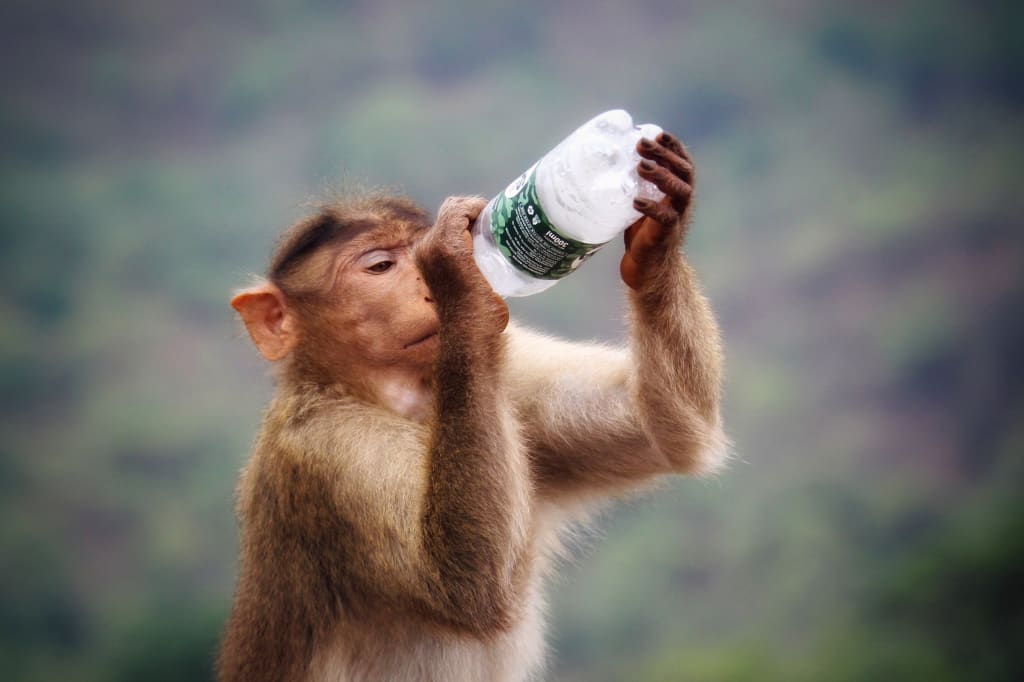Monkey Parenting and Offspring
Exploring Reproductive Behaviour, Parental Care, and Learning

In the world of primates, monkeys exhibit fascinating reproductive behaviours and intricate relationships between mothers and infants. This article delves into the reproductive behaviour of monkeys, including mating rituals, gestation periods, and parental care. Furthermore, we will explore the vital connection between mothers and their offspring, as well as how young monkeys learn from their parents.
Mating Rituals:
Monkeys employ various mating rituals that serve as courtship displays and mechanisms to attract potential mates. These rituals can involve vocalizations, body postures, and elaborate movements. For instance, male howler monkeys produce loud vocalizations to establish their dominance and attract females, while male mandrills showcase their colorful facial markings and engage in physical displays to impress females.
Gestation Periods:
The gestation period in monkeys varies across different species. Generally, it ranges from around 140 to 210 days, depending on the species. For example, the gestation period for rhesus macaques is approximately 165 days, while for chimpanzees, it extends to around 230 days. During this time, the female monkeys undergo significant physiological and behavioural changes in preparation for motherhood.
Parental Care:
Monkeys exhibit diverse patterns of parental care, influenced by factors such as species, social structure, and environmental conditions. In some species, both males and females contribute to the upbringing of their offspring, while in others, the responsibility lies primarily with the mothers.
Maternal Care:
Maternal care is particularly prominent among monkeys. After birth, the mother plays a crucial role in protecting, nurturing, and providing for her offspring. She forms a strong bond with her infant, which involves extensive physical contact, such as carrying, grooming, and nursing. Through grooming, mothers not only maintain the hygiene of their young but also reinforce the bond and provide comfort.
Infant Development and Learning:
Monkey infants undergo a critical period of development during which they learn important skills and behaviours from their parents. The mother acts as the primary teacher, guiding her offspring through various aspects of primate life. For instance, young monkeys observe their mothers' foraging techniques and learn to identify and select appropriate food sources. They also learn social interactions and hierarchies by observing their mother's behaviour within the group.
Imitation and Social Learning:
Imitation and social learning play crucial roles in the acquisition of skills and knowledge among monkey infants. They closely observe and imitate their mothers' actions, gradually mastering essential skills such as locomotion, climbing, and manipulation of objects. Additionally, social learning enables young monkeys to understand the complex dynamics of their social group, including communication, dominance, and conflict resolution.
Play and Exploration:
Play is an important component of monkey infant development. It serves as a platform for acquiring physical coordination, social skills, and problem-solving abilities. Playful interactions with peers and family members help young monkeys refine their motor skills, practice social behaviours, and develop cognitive abilities. Through play and exploration, they gain confidence and adaptability, preparing them for future challenges.
Weaning and Independence:
As monkey infants grow, they undergo a gradual process of weaning, transitioning from their mother's milk to solid foods. Weaning can occur at different ages depending on the species, ranging from a few months to several years. During this period, the mother gradually reduces nursing, encouraging the young to become more independent in obtaining food. The offspring learn from their mothers how to forage and select appropriate food items in their environment.
Extended Family and Kinship:
In many monkey species, infants have the opportunity to interact not only with their mothers but also with other members of the social group. Extended family members, such as aunts, uncles, and older siblings, often play






Comments (2)
I have recently started posting my articles here and would love to hear your thoughts and feedback. It would mean a lot to me if you could take a few moments to read and share your thoughts. Please subscribed to me and I will do the same. <3
Done ! Kindly read mine too! https://vocal.media/education/taking-action-to-halt-climate-change